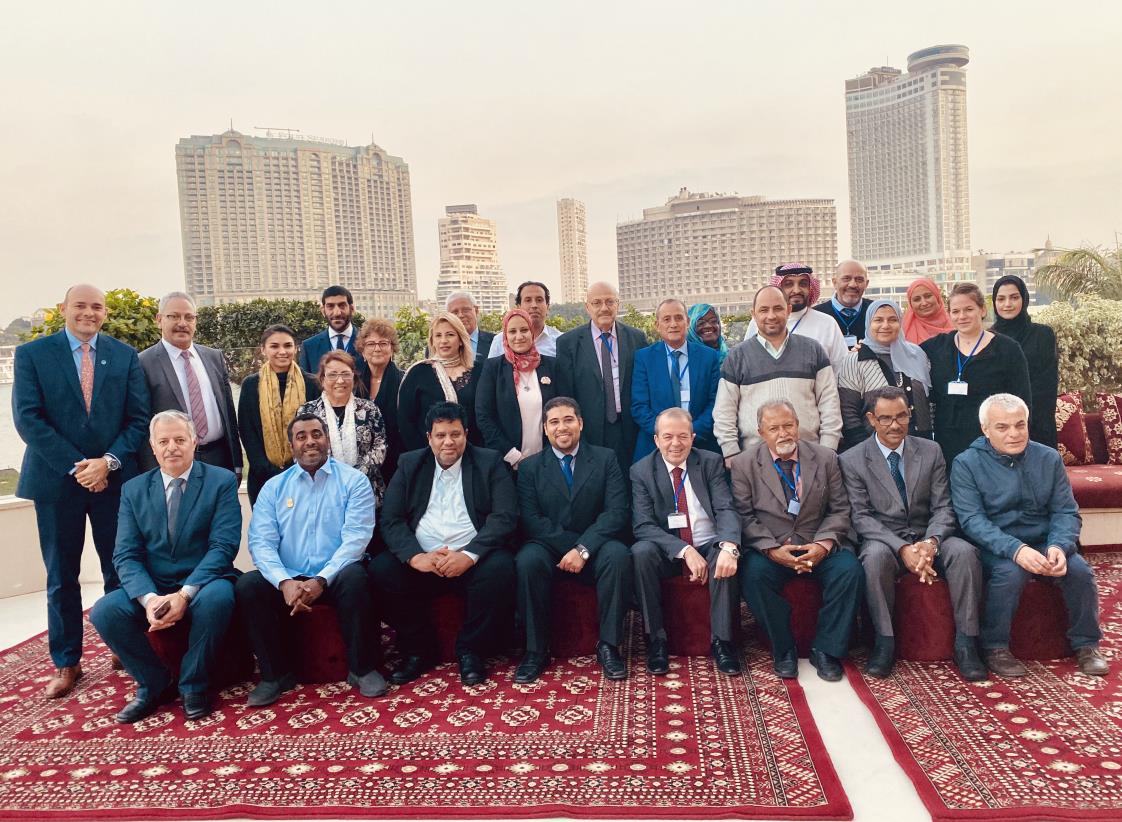FAO member countries and experts consult on a “Code of Conduct” for Food Loss and Waste Reduction

Photo Credit: ©FAO
16 December 2019, Cairo, Egypt - The Food and Agriculture Organization of the United Nations (FAO) held a consultation workshop to present and discuss a “Code of Conduct” for guiding the public sector in taking action to reduce food loss and waste (FLW). The workshop gathered country focal points nominated by their respective governments, representing 15 countries in the Near East and North Africa (NENA) region, along with a group of invited experts who have been working in various capacities on FLW measurement and reduction within NENA.
The Code of Conduct are a set of voluntary, global, internationally agreed, guiding principles and practices that different stakeholders can adopt and apply in order to achieve FLW reduction while yielding positive outcomes that are aligned with the 2030 Sustainable Development Agenda. A code of conduct would provide a benchmark for country FLW reduction strategies, policies and programs; outline what constitutes acceptable practices in FLW reduction and how to avoid any negative consequences; and promote joint action, harmonization of approaches, and assessment of progress towards achieving the ambitious SDG 12.3 target to reduce food loss and food waste by 50% in 10 years time.
“The voluntary Code of Conduct was requested by FAO member countries at the Committee on Agriculture in 2018. In response to this, FAO is leading an inclusive consultative process to ensure that the code of conduct represents a global consensus and takes into consideration country diversities and the views of all key stakeholders. The Code of Conduct is a global document but applied regionally, as such the views and nuances of the NENA countries and experts are integral to this process,” explained Divine Njie, Deputy Strategic Program Leader, Sustainable Food Systems, FAO Rome.
The workshop was also planned to benefit from this rich gathering of country focal points and experts to discuss the status of food loss and waste in the region, learn from experience and chart a way forward to better plan, coordinate, exchange lessons learned, and join together in implementing work to identify, measure and develop solutions to reducing food loss and waste.
“The experts and member countries represented have the opportunity for rich exchange of experiences, best practice sharing, and planning activities related to FLW reduction in their countries. We hope to help strengthening collaboration and capacity among a network of FLW focal points and specialists in the NENA region, and revitalize FAO support to our member countries in the new context of the Sustainable Development Agenda and Target 12.3,” added Jozimo Santos Rocha, Agro-Industry Officer (Agribusiness and Value Chains), FAO Regional Office for the Near East and North Africa.
FAO’s support to NENA member countries falls under the umbrella of the “Global SAVE FOOD Initiative” and is a pillar of the Regional Initiative on “Small Scale Family Farming”.
